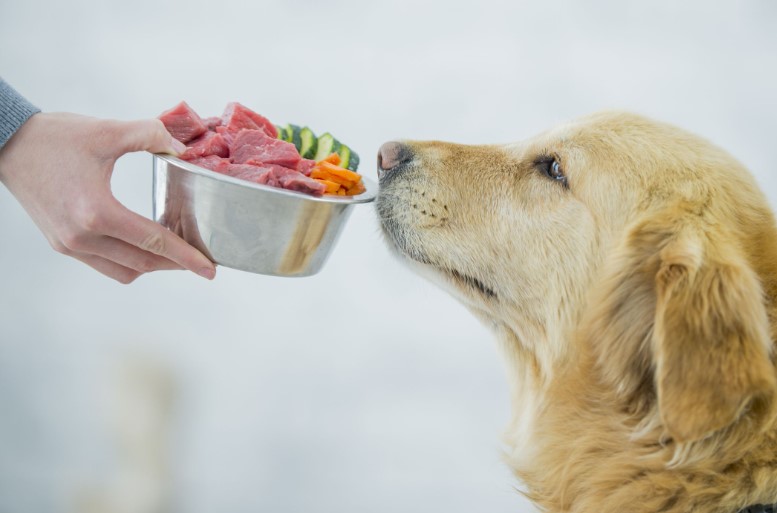
Healthy Pet Food: Nourishing Your Furry Friend
Introduction
When it comes to our beloved pets, providing them with a healthy and nutritious diet is of utmost importance. Just like humans, pets require a balanced and wholesome diet to thrive and maintain their overall well-being. In this article, we will explore the world of healthy pet food and delve into the various aspects of providing optimal nutrition for your furry companions. From understanding the benefits of healthy pet food to debunking common myths, we’ll equip you with the knowledge you need to make informed choices for your pet’s diet.
What is Healthy Pet Food?
Healthy pet food refers to nutritionally balanced meals specifically formulated to meet the dietary needs of our furry companions. It is designed to provide a complete and balanced diet, ensuring that pets receive all the necessary nutrients, vitamins, and minerals to maintain optimal health. High-quality pet food is typically developed by veterinarians and animal nutritionists, taking into consideration the specific nutritional requirements of different species, breeds, and life stages.
The Importance of Balanced Nutrition
Providing your pet with balanced nutrition is crucial for their overall health and well-being. Just like humans, pets require a proper combination of proteins, carbohydrates, fats, vitamins, and minerals to support their bodily functions. A well-balanced diet helps promote healthy growth, strong immune systems, shiny coats, and optimal weight management for our furry friends.
Choosing the Right Ingredients
When selecting healthy pet food, it’s essential to pay attention to the ingredients listed on the packaging. Look for high-quality protein sources such as chicken, beef, or fish, as they provide essential amino acids for muscle development and repair. Whole grains, fruits, and vegetables should also be included to provide necessary carbohydrates, fiber, and vitamins. Avoid artificial additives, fillers, and excessive amounts of preservatives, as these can have a negative impact on your pet’s health.
The Role of Protein in Pet Food
Protein plays a vital role in the overall health of our pets. It is essential for muscle development, tissue repair, and the production of enzymes and hormones. When selecting pet food, ensure that the protein source is of high quality and easily digestible for your furry friend. This will help them maintain strong muscles and a healthy coat.
Healthy Pet Food for Different Life Stages
Just like humans, pets have different nutritional requirements at different stages of their lives. Puppies and kittens, for example, need diets that support their rapid growth and development. Senior pets, on the other hand, may require specific diets to address age-related issues such as joint health. When choosing pet food, opt for formulas specifically designed for your pet’s life stage to ensure they receive the necessary nutrients.
Understanding Pet Food Labels
Pet food labels can provide valuable information about the product’s nutritional content and quality. Understanding these labels will help you make informed choices for your pet’s diet. Look for keywords such as “complete and balanced,” which indicate that the food meets the essential nutritional requirements. Additionally, check the guaranteed analysis section to ensure that the food contains adequate levels of protein, fat, fiber, and other essential nutrients.
Common Myths about Healthy Pet Food
There are several misconceptions surrounding healthy pet food. Let’s debunk some of the common myths:
- Myth: Homemade diets are always better. While homemade diets can be an option, it is essential to ensure they are nutritionally balanced and meet your pet’s specific needs. Consulting with a veterinarian or veterinary nutritionist is crucial to prevent nutrient deficiencies or imbalances.
- Myth: Grain-free diets are always superior. Grain-free diets gained popularity in recent years, but it’s important to note that grains can be a healthy source of carbohydrates for pets. Grain-free diets may be beneficial for pets with specific dietary sensitivities, but they are not inherently superior to diets containing grains.
- Myth: All pets require the same diet. Each pet is unique and may have specific dietary requirements based on factors such as breed, age, size, and health conditions. It’s important to choose pet food that is tailored to your pet’s individual needs.
- Myth: Wet food is always better than dry food. Both wet and dry pet food can be nutritionally complete and balanced. The choice between wet and dry food depends on your pet’s preferences, dental health, and specific dietary needs.
FAQs about Healthy Pet Food
Q: Is a homemade diet better than commercial pet food?
A: Homemade diets can be an option for providing nutrition to pets; however, it is crucial to ensure they are nutritionally balanced and meet your pet’s specific requirements. Consulting with a veterinarian or veterinary nutritionist is recommended to formulate a balanced homemade diet.
Q: How can I transition my pet to a new diet?
A: Gradual transition is key when switching your pet to a new diet. Start by mixing small amounts of the new food with the old food, gradually increasing the proportion of the new food over a week or two. This will help prevent digestive upset and allow your pet to adjust to the new diet.
Q: Should I feed my pet grain-free food?
A: Grain-free diets may be suitable for pets with specific dietary sensitivities, but they are not necessary for all pets. Grains can provide essential carbohydrates and nutrients. If your pet doesn’t have any grain allergies or sensitivities, a diet containing grains can be a healthy choice.
Q: Can I feed my pet a vegetarian diet?
A: While it is possible to feed pets a vegetarian diet, it requires careful planning and consideration. Dogs are omnivores and can adapt to a vegetarian diet more easily than cats, which are obligate carnivores. If you choose to feed your pet a vegetarian diet, consult with a veterinarian or veterinary nutritionist to ensure it meets all their nutritional needs.
Q: Is wet or dry food better for my pet?
A: Both wet and dry pet food can provide complete and balanced nutrition. The choice between wet and dry food depends on your pet’s preferences, dental health, and specific dietary requirements. Wet food can be beneficial for pets with certain health conditions or those requiring increased hydration.
Q: What should I do if my pet has specific dietary requirements?
A: If your pet has specific dietary requirements due to allergies, sensitivities, or health conditions, consult with a veterinarian or veterinary nutritionist. They can recommend appropriate pet food options or even formulate a custom diet tailored to your pet’s needs.
Conclusion
Feeding your pet a healthy and nutritious diet is essential for their overall well-being. By choosing high-quality pet food that meets their specific nutritional needs, you are providing them with the building blocks for a healthy life. Remember to consult with a veterinarian or veterinary nutritionist to ensure you make the best choices for your pet’s diet. With proper nutrition, your furry friend can enjoy a happy and healthy life by your side.
Partner Site : Financial Management, Vacation Destinations, Home Garden, Landscape Design, Home Decoration, How News Today, Healthy Lifestyle, Finance News, Business Loans, Healthy Update


